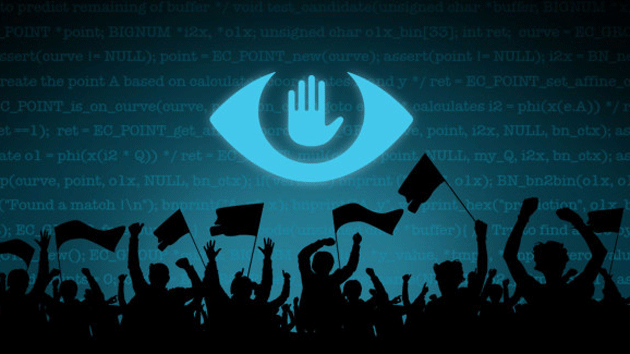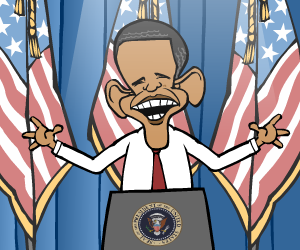
<a href="http://www.flickr.com/photos/prachatai/12436278803/sizes/o/in/photolist-jWXbq4-jZHBnF-jVxCqB/">Prachatai</a>/Flickr
Remember the SOPA blackout? The 2012 protest against the expansion of online copyright enforcement was pretty hard to ignore, with Google and other major sites blacking out their homepage logos or going offline entirely.
Yesterday’s “The Day We Fight Back” protest against NSA surveillance was supposed to have been similarly huge, but unless you follow this sort of thing closely, you might have missed it. It was covered lightly in the press, and only briefly trended on Twitter. Given how much Edward Snowden’s revelations have supposedly insulted the sensibilities and threatened the profits of Silicon Valley, the “we” in “The Day We Fight Back” has proved surprisingly small.
This is not to say the NSA protest didn’t get any attention: It generated 350,000 Facebook shares, some 75,000 phone calls and 150,000 emails to Congress, and 215,000 signatures on an online petition. Yet that can’t touch the impact of the protest against Stop Online Piracy Act—the largest protest in the short history of the internet. The SOPA campaign took off because “people find it much easier to rally around a specific ‘ask'” such as killing SOPA, says Adi Kamdar, an activist with the Electronic Frontier Foundation, which helped organize yesterday’s protest—”a much broader ask and a much more nuanced ask.”
Yet the anti-NSA action might have gone viral had major tech companies put their weight behind it. While the Reform Government Surveillance Coalition (which includes Twitter, Facebook, and Microsoft) endorsed the protest, and Google and Twitter issued supportive statements, you wouldn’t have known it from their homepages.
The reluctance of Big Tech to ally too publicly with NSA critics reflects the complexity and geopolitical sensitivity of surveillance in the digital age. On one hand, American tech companies need to side with the privacy advocates to reassure their users—especially noncitizen users—that their data isn’t simply being handed over to the feds. On the other, appearing too anti-establishment could make them look unpatriotic, jeopardize government contracts, and hurt their other legislative priorities, such as immigration and tax reform.
And then there’s the question of whether Silicon Valley really wants to stoke the fires of indignation about online privacy. It’s not such a huge leap from protesting the collection of personal data by government spies to protesting similar practices by private data-miners and online advertisers.
The SOPA blackout represented the perfect storm of consumer indignation and corporate self-interest. People wanted to upload and view songs and movies without getting thrown in jail and the owners of file-sharing sites such as Facebook and YouTube wanted to keep selling ads based on all of those uploads and page views. The NSA battle is different: A creeping police state could be a much more serious threat, but it’s also much harder to figure out how it would affect surfing the Net, or the strength of the next quarterly earnings report.












